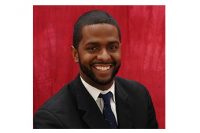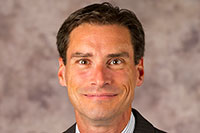
On June 8, UIC John Marshall Law School in Chicago hosted Bakari T. Sellers for “A Conversation about Race & Injustice in America.” Sellers is an attorney, political commentator and activist. His memoir, My Vanishing Country, was published last month by HarperCollins.
The discussion, available on the Law School’s YouTube page, was moderated by Professor Teri McMurtry-Chubb, who joined UIC John Marshall from Mercer University School of Law and has lectured nationally on structural discrimination in educational institutions and the workplace.
Sellers explained how his father’s experiences inspired him to pursue a legal career. His father, civil rights icon Cleveland Sanders, grew up during the “Emmett Till generation” and was a leader in the Student Non-Violent Coordinating Committee. SNCC sent Cleveland Sellers to Mississippi to help search for the bodies of James Chaney, Andrew Goodman and Michael Schwerner. Cleveland Sellers later became the only person convicted and imprisoned in connection with the infamous 1968 Orangeburg Massacre; he was pardoned 25 years later.
Sellers, who ran for the South Carolina legislature during his first year in law school, becoming the youngest elected African-American legislator in the country, stressed that while “[w]e are on the brink of a moment,” we’ve seen similar movements before. As concrete steps, Sellers emphasized the need for systemic change, such as limiting qualified immunity for police officers and establishing a federal police misconduct database.
In response to student questions, Sellers also explained that “defunding” the police doesn’t mean that police departments will be closed, but that certain budget line items should be redirected towards efforts that prevent crime, such as summer youth programs and public school education. He cited Camden, NJ, as an example of a city that “defunded” its police department and the city’s crime has since dropped by close to half.
Sellers also shared his personal challenges with the U.S. healthcare system. These included the hospital near his hometown being closed and near-death experiences with his wife and daughter. He tied systemic injustices in the health-care system to the high death rate black Americans have suffered as a result of COVID-19. He shared the quote, “when America gets a cold, black people get the flu,” and then added that when COVID-19 comes to town, black people die.
Sellers concluded the discussion by offering students a piece of advice from Benjamin Elijah Mays, a man he described as the greatest educator of all time. “Whatever you do, strive to do it so well that no man living and no man dead and no man yet to be born could do it any better.”

